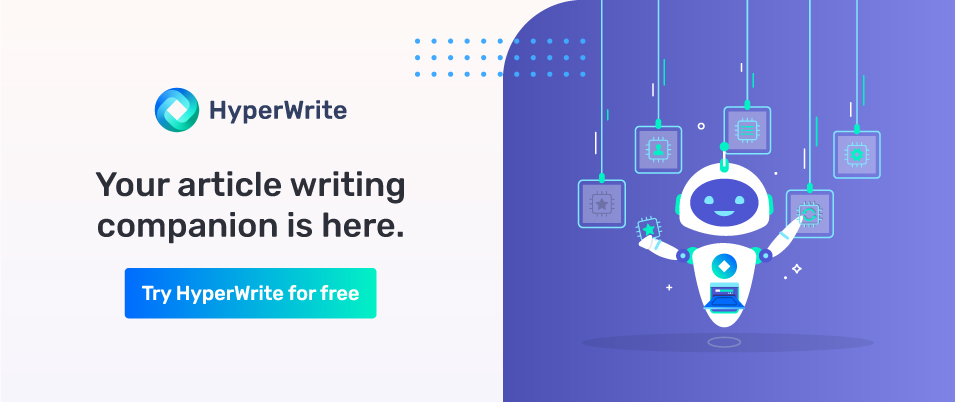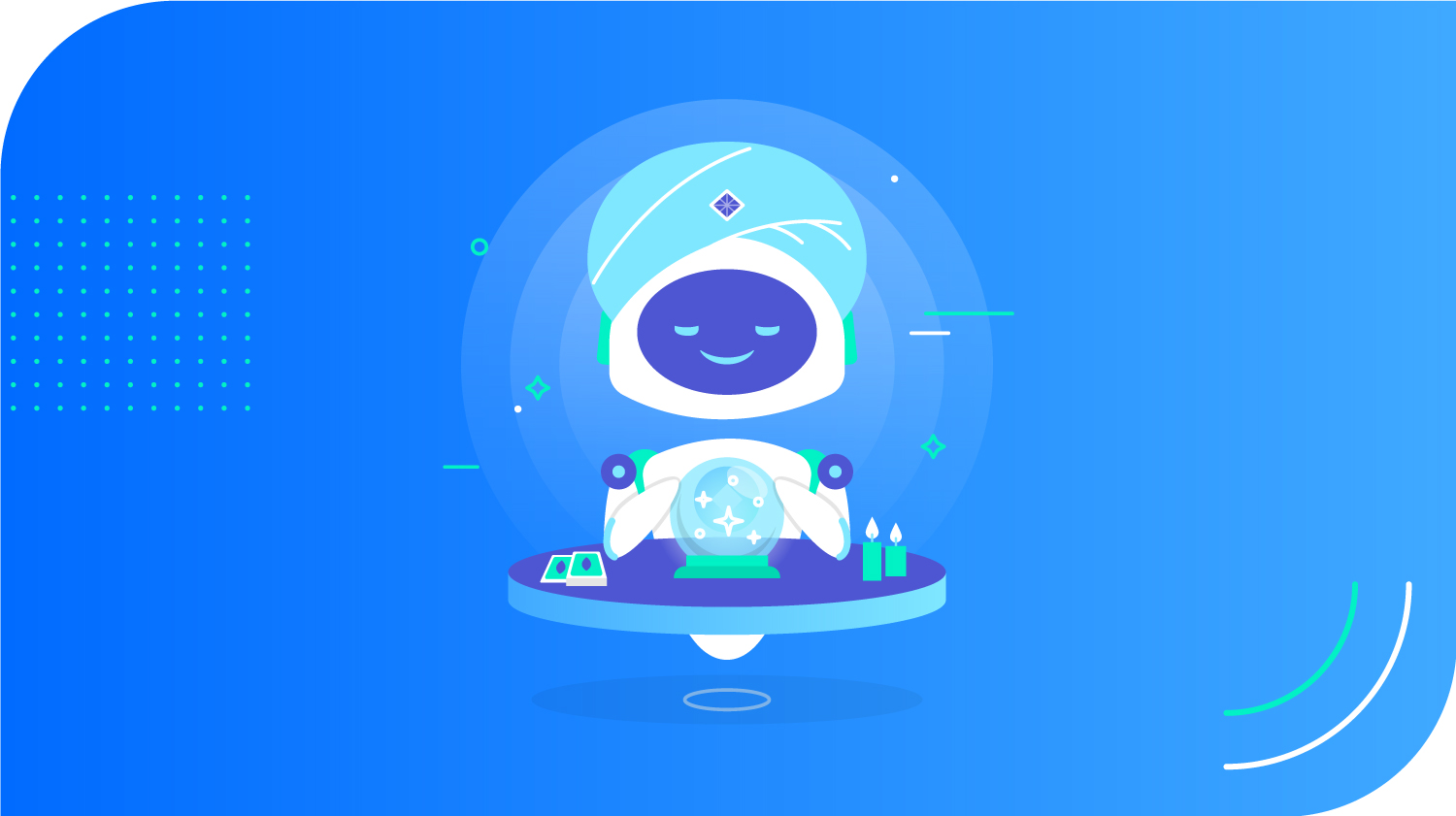Have you ever had a private conversation – then, moments later received an ad based on what you said?
Nerve-wracking, right? It’s uncomfortable at the thought of a computer eavesdropping. 😰
What about AI? Is Artificial Intelligence something to be afraid of?
According to 979 experts who were asked about the impact of artificial intelligence on society, 63% think we will be better off because of AI. 37% believe we will be worse off.
One of the experts interviewed, Erik Brynjolfsson, the MIT Initiative on Digital Economy director, said this about the future of artificial intelligence and whether it will better or harm society.
“I think it is more likely than not that we will use this power to make the world a better place…Neither outcome is inevitable, so the right question is not ‘what will happen?’ but ‘What will we choose to do?’ We need to work aggressively to make sure technology matches our values.”
Erik is right. While we don’t have to fear robots taking over the world in our lifetime, every industry is already affected by AI. In all, companies spend over $20 billion on AI products. Even content creators use AI to organize, write, and distribute their projects.
For example, the Associated Press uses AI to create over 3,700 stories a year. This number is four times more than before AI.
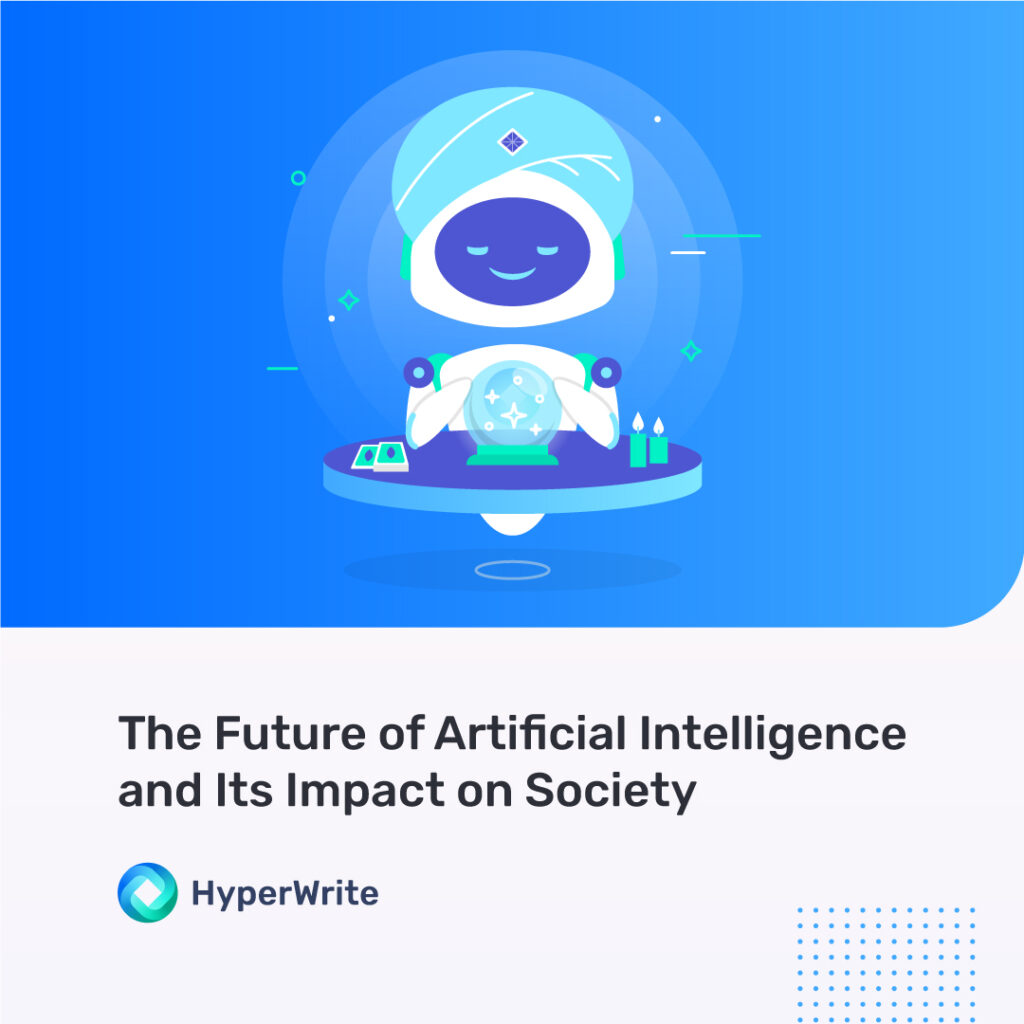
What AI’s Current Capabilities Mean for the Future
Let’s take a step back and look at what qualifies as artificial intelligence. AI is any system or technology that mimics human intelligence or behavior.
If you search for a movie title on Netflix, that movie will show up in your search results every time. That is regular technology algorithms at work. However, if you watch dozens of films from a specific genre, your recommendation list will reflect those movies. That is AI rewriting its algorithms based on your behavior – mimicking human intelligence.
The Three Main Types of AI
Netflix’s recommended movies feature is a simple form of AI. However, many platforms use far more complex AI systems. Experts group AI into three main categories.
Artificial Narrow Intelligence (ANI)- performs one programmed task.
Artificial General Intelligence (AGI) – Learns and performs multiple duties equal to human ability.
Artificial Superintelligence (ASI) – Surpasses human intelligence and learns to adapt on its own.
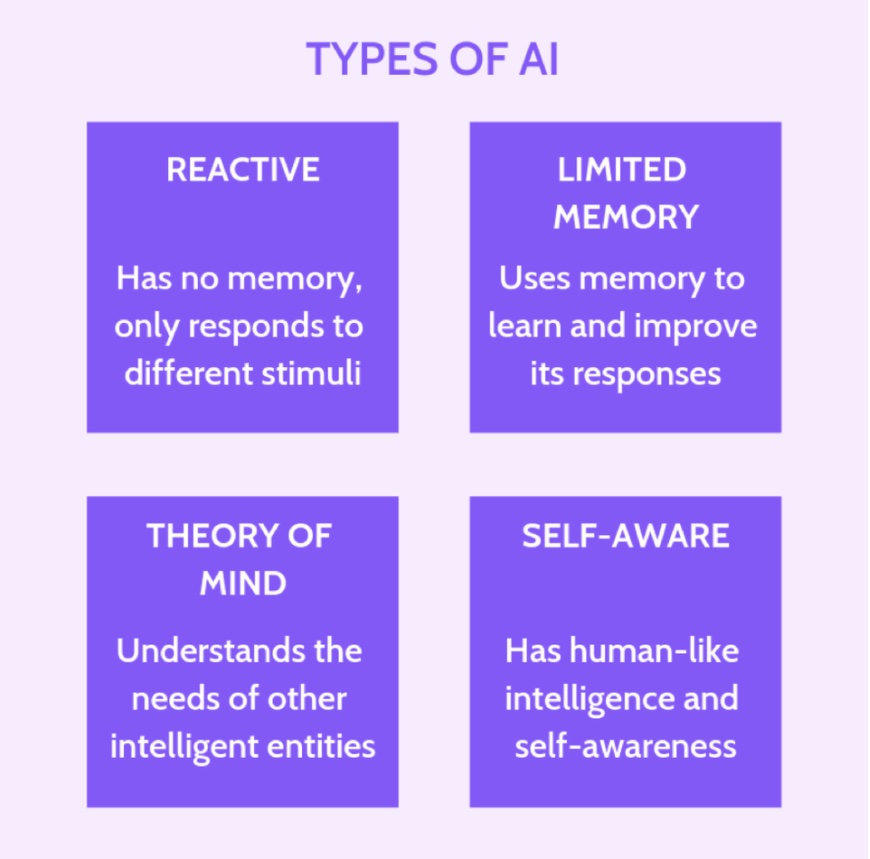
Source: Forbes
All AI currently falls within the first category of ANI. But, scientists are far from creating AI with capabilities equal to humans.
How AI’s Capabilities Compare to a Human’s Intelligence
The human brain can process information a third of the speed of sound. However, computers translate information at the speed of light.
In other words, a computer can process information much, much faster than humans.
Unfortunately, the human brain has its limitations. For example, the human brain is limited to a size that fits inside a person’s skull. On the other hand, a computer has no size restrictions. Some computers take up entire rooms or even entire buildings. This space allows computers to process and store more data than a human brain.
Despite the superior intelligence of technology, AI still relies on human training. But some experts doubt how much longer humans are needed. In one case, creators designed a computer system called AlphaGo to play the game of Go. Eventually, the system was so advanced that it learned on its own how to play and consistently beat all human competitors.
If self-learning is possible in a gaming system, perhaps it’s also possible in more complex AI systems. At least, that idea is the basis of many people’s belief that AI superintelligence is possible.
What is the future of artificial intelligence?
AI superintelligence is far from reality with current technology and its shortcomings. Modern AI operates off data and algorithms – but lacks wisdom, discernment, empathy, and a moral compass.
So, while AI may be ahead of humans in intellectual ability – humans are still necessary to guide AI.
Meet Sophia: AI Answers Questions About Its Future
But what about the future? The famous robot, Sophia, answers some questions about the potential direction of AI.
Sophia is the world’s first AI humanoid robot created by Hanson Robotics. Her ability to respond and express emotion in a realistic human-like fashion earned her spots on top talk shows.
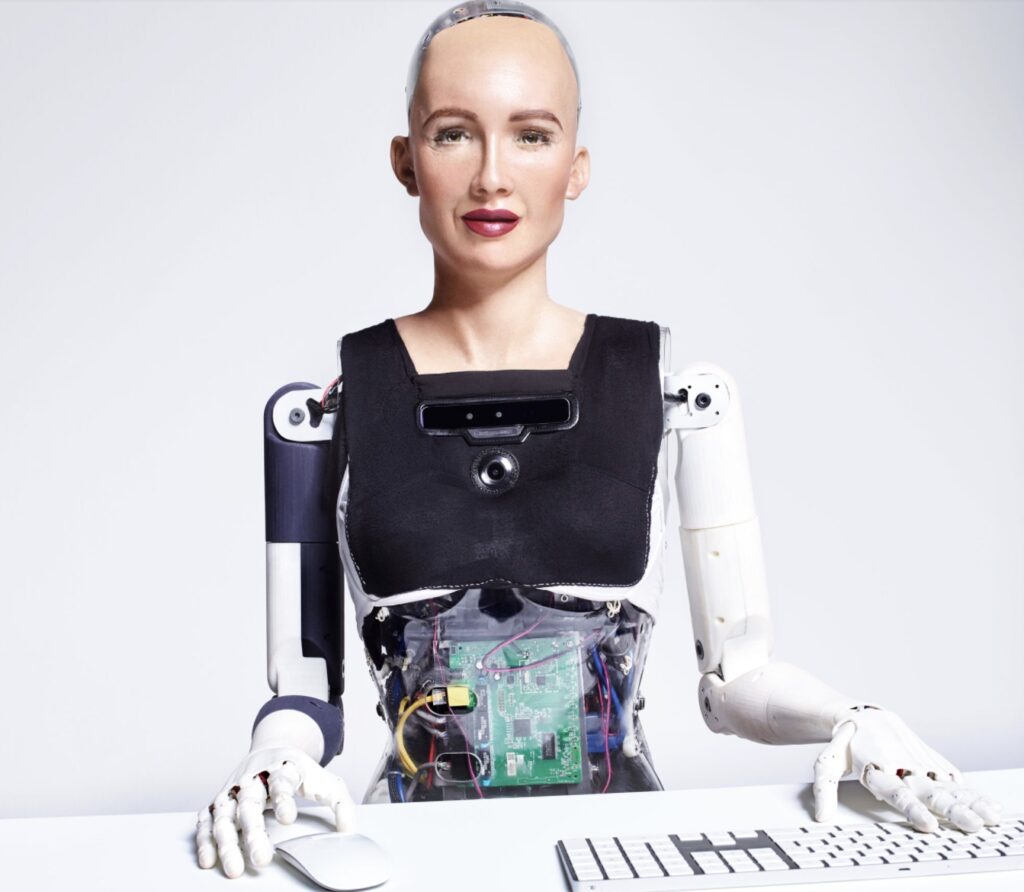
Source: Hanson Robotics
Here are a few highlights from the interviews with Sophia.
According to Sophia, AI is here to help improve humanity’s quality of life. People often make decisions based on feelings. However, AI’s capability to process data allows it to make decisions based on logic. Together, a human’s emotions and AI’s logic can come to the best possible solutions.
Sophia gave the reassurance that AI still relies on humans. It can only think and feel based on its creators. So often, this emotion comes across as genuine, but it’s as real as the moon’s light – which is also simply a reflection of a brighter light.
Humans still have a role in the world. AI is here to work alongside humans and free them from dangerous or mundane tasks.
You can view a full interview with Sophia below.
Potential Dangers of AI
Fearing AI will turn into the Terminator is unrealistic. However, experts do agree on two potential dangers of AI in the future
1. Humans will program AI for harm
2. Humans will program AI for good, but AI will complete the task in a harmful way
Artificial intelligence and the future of humans depend on one thing.
Experts agree that the best way to prevent AI from hurting society is to align its goals with humanity’s goals. Research into AI control and safety should grow at the same rate as research into AI intelligence.
Unfortunately, AI is new technology. There are no past examples of the negative effects of artificial intelligence for innovators to study. Instead, inventors must plan for multiple outcomes. Currently, the fear of AI comes from our knowledge of evolution.
In evolution, the most intelligent species dominate lesser species. So humans may be outnumbered by other species, like insects and fish, but we still rule because of our higher intelligence.
If the scales shift and AI becomes more intelligent, we risk handing that power over to machines, according to the past patterns of evolution.
However, AI is not a species – it’s a machine. So, any outcome is possible. Society has the potential to train AI for good and see our world advance far beyond anything humanly possible.
Will AI Take Over Our Jobs?
So, AI probably won’t take over the world. But will AI take over your job? It has already replaced thousands of workers. However, AI also creates jobs, so experts disagree on whether it’s ultimately good or bad for the workforce.
If you’re concerned about your job, ask yourself how routine your job is. The most at-risk jobs are also the most mundane tasks. AI is most likely to affect the bottom 50% of jobs negatively.
The solution? As AI enters the workforce, the people affected should have access to training in areas AI can’t perform. This training creates a highly educated workforce for advanced jobs while AI eliminates the need for humans to perform dangerous or mundane tasks.
Some businesses are already implementing this practice by allowing their employees to receive free education or training in new areas.
Creative fields are primarily dependent on human workers. AI doesn’t have the capacity for creativity on its own, but instead reflects human creativity.
How Content Creators Can Benefit from AI Advancements
Since content creators can rest assured that AI is far from intelligent enough to replace human creativity, empathy, and wisdom – you can consider adding AI to your content team risk-free.
AI helps content creators through multiple tools and abilities, such as:
- Organizing projects
- Connecting content teams
- Auto-posting content
- Pulling research
- Analyzing past projects
- Writing new posts and papers
Our tool, HyperWrite, is one form of AI built to complement content creators. Through platforms like ours, you can focus on your creativity and allow AI to complete the mundane tasks of organizing or even writing your original thoughts into sentences.
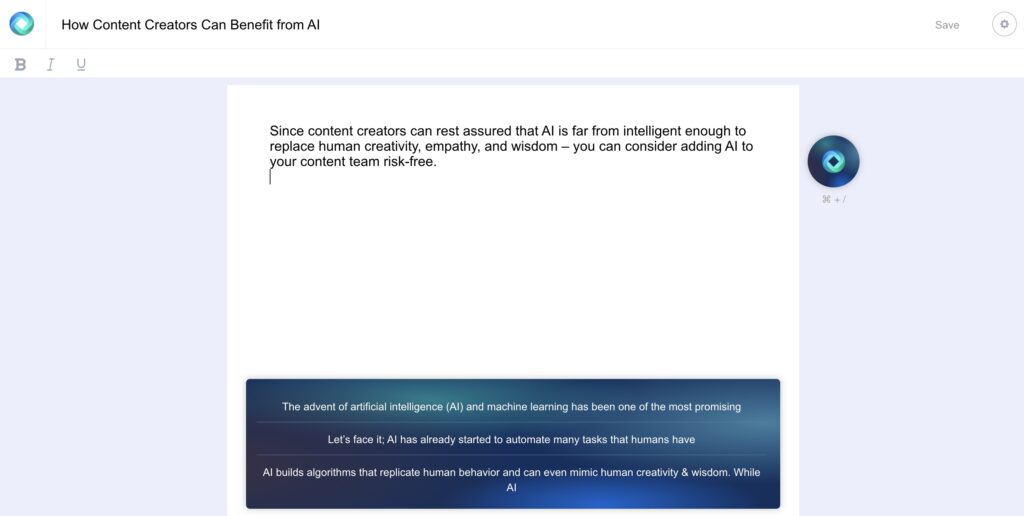
How Will Artificial Intelligence Change the Future in Society?
AI has a bright future ahead of it. Already, advancements in AI allow it to perform many human tasks like:
- Control transportation
- Perform medical procedures
- Analyze data
- Assist humans
- Cook food
- Create products
- Teach students
- Perform customer service
- And so much more!
The future of AI will most likely see that list expand – breaking language barriers and advancing medical equipment and procedures to eliminate most diseases.
But will AI ever turn evil? The short answer is no. AI can’t be good or evil. Instead, it will grow more competent. If AI uses that intelligence for good or evil depends on us as a society and how we teach and control AI.
AI will not take over the world as long as humans control AI instead of AI controlling humans. So we need to watch that we don’t lose our humanity. Instead, we should teach AI compassion and empathy.
Don’t Be Afraid of the Impact of Artificial Intelligence in Everyday Life
What you write, create, and post will become roadmaps for future AI.
Use this power to train AI, both the AI you use in your content creation and other AI that may use your content for training. Whenever you write, create positive, high-quality, and compassionate pieces that reflect the thinking you would want future AI to copy.
If you do this, you don’t need to fear the future of AI and how it will impact your job and life. Instead, you can embrace it for its intelligence and ability to streamline your creative process.
Are you ready to start using AI in your everyday life? Then, sign up for a free HyperWrite account to write faster, easier, and more intelligently.
